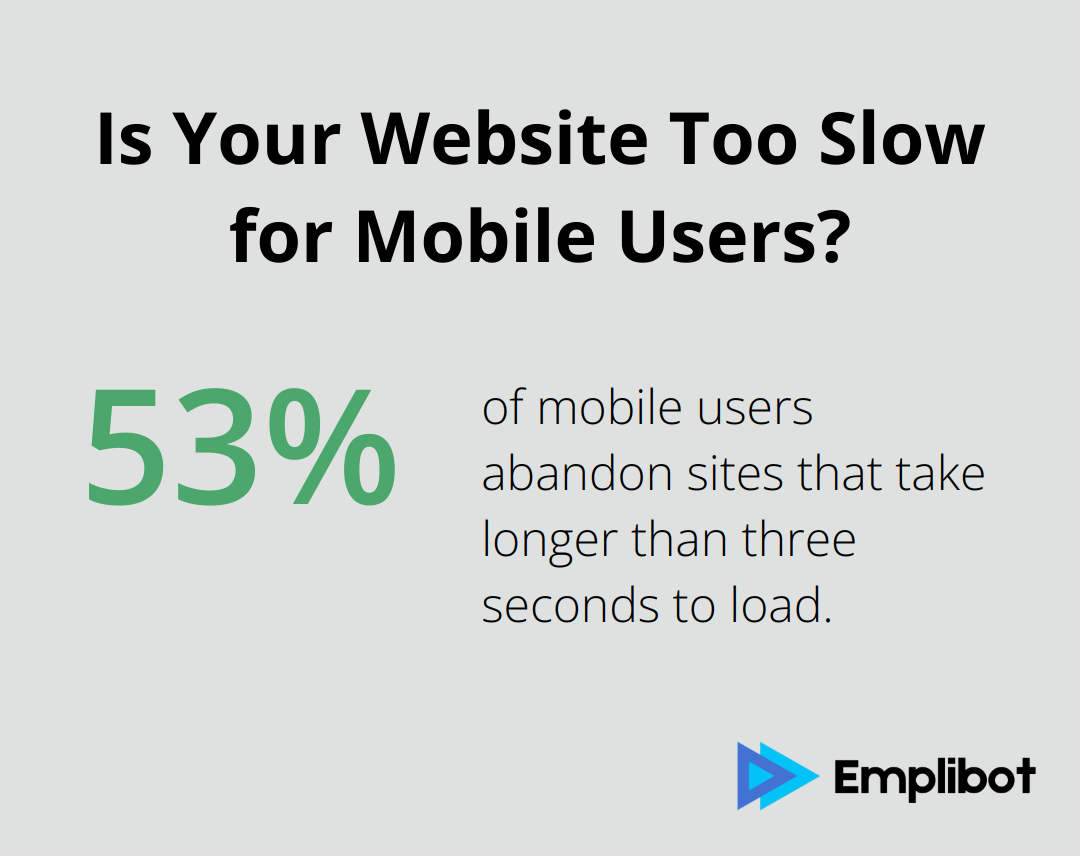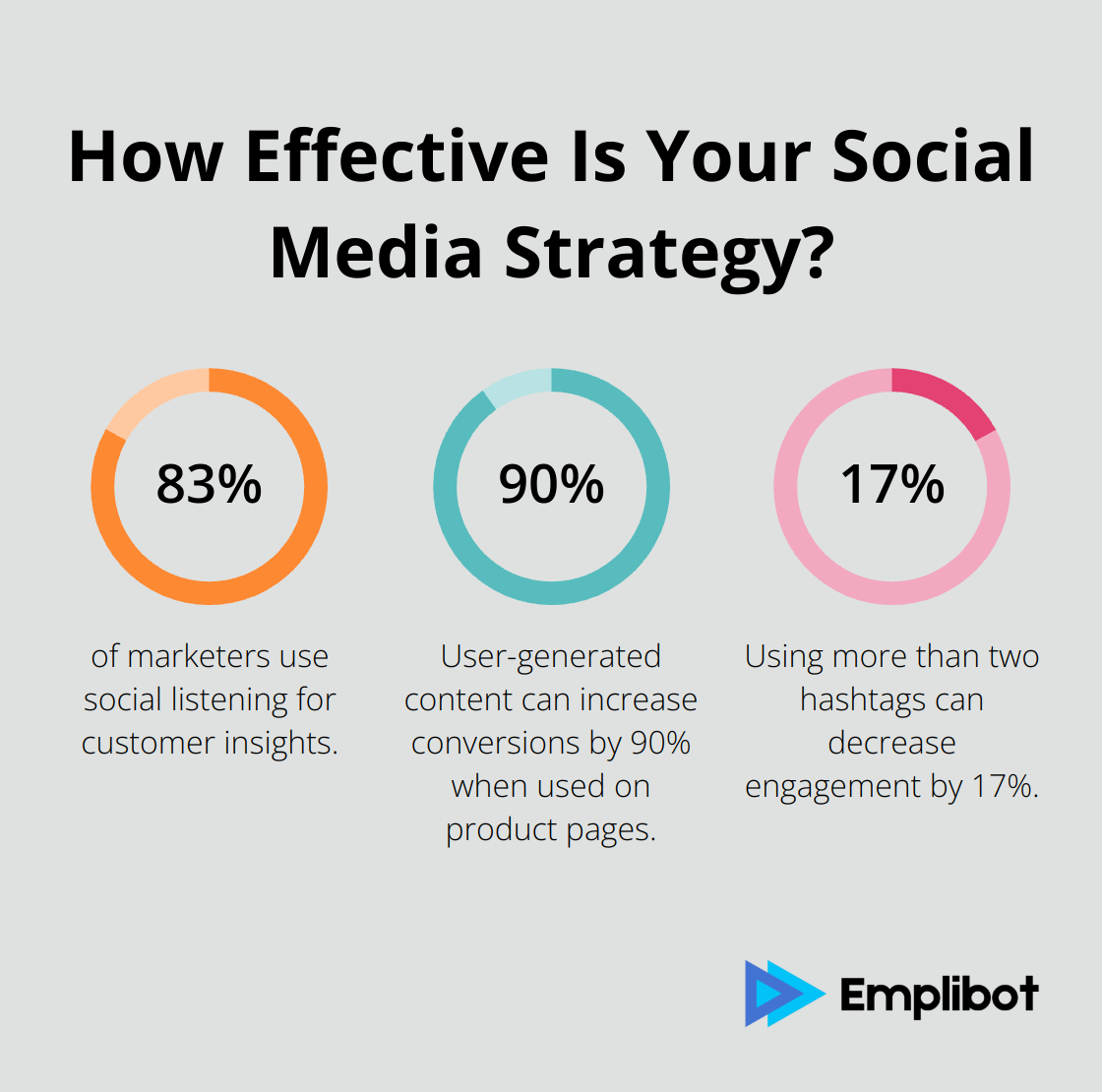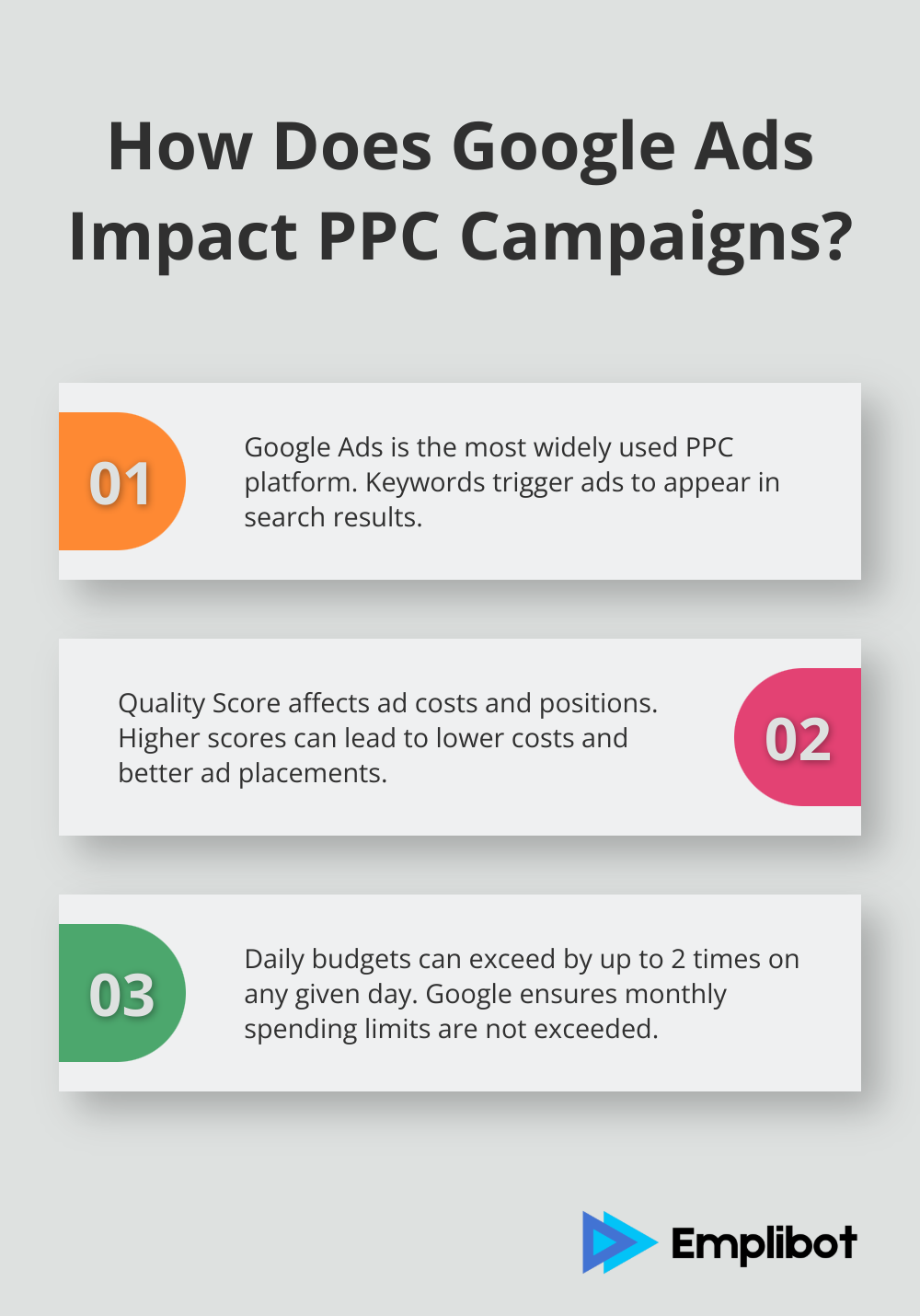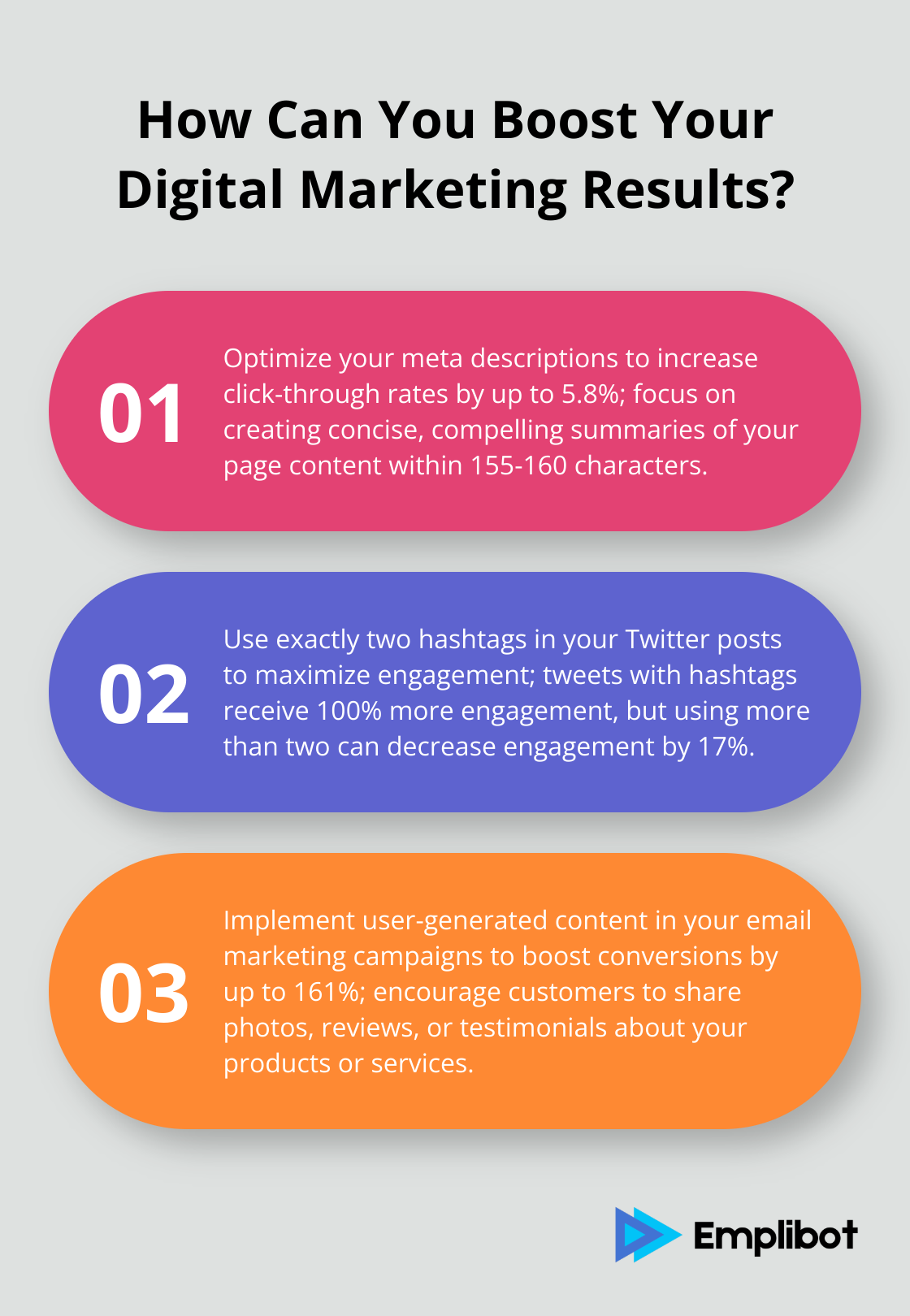Online marketing keywords are the building blocks of successful digital campaigns. At Emplibot, we’ve seen firsthand how understanding these terms can make or break marketing efforts.
This guide will walk you through essential keywords in SEO, social media, and PPC advertising. By mastering these terms, you’ll be better equipped to navigate the complex world of online marketing and drive results for your business.
What Are Essential SEO Keywords?
Search Engine Optimization (SEO) forms the foundation of effective online marketing. SEO centers around keywords that help your content achieve higher rankings in search engine results pages (SERPs). Let’s explore the essential SEO keywords that can significantly impact your digital marketing efforts.
On-Page SEO Terms
On-page SEO optimizes individual web pages to rank higher and attract more relevant traffic. Key terms include “meta titles” and “meta descriptions,” HTML elements that provide concise summaries of your page content to search engines and users. A study by Moz reveals that pages with optimized meta descriptions have a 5.8% higher click-through rate than those without.
“Header tags” (H1, H2, H3, etc.) structure your content and help search engines understand its hierarchy. “Alt text” for images improves accessibility and provides context about your visual content to search engines.
Off-Page SEO Terms
Off-page SEO involves actions taken outside of your website to impact your SERP rankings. “Backlinks” stand at the core of off-page SEO. These links from other websites to yours act as votes of confidence in your content. A Backlinko study found that the number one result in Google has an average of 3.8 times more backlinks than positions 2-10.
“Domain authority” represents the strength of a website’s backlink profile. Tools like Ahrefs or SEMRush help you track your domain authority and compare it to competitors.
Technical SEO Terms
Technical SEO ensures that search engines can crawl, index, and render your website effectively. “Site speed” is a critical technical factor, with Google reporting that 53% of mobile users abandon sites that take longer than three seconds to load.
“XML sitemaps” help search engines understand your site structure and find all your important pages. Google states that sitemaps are especially helpful for large websites, new sites, and those with archived content not well linked internally.
Schema markup helps search engines return more informative results for users. Not only does improving organic CTR influence SEO ranking, but it also empowers your website to generate more traffic, given the same ranking.

Understanding these SEO keywords proves essential for any business aiming to improve its online visibility. While tools can automate much of the SEO process, grasping these terms allows you to make informed decisions and better interpret your SEO performance.
As we move forward, let’s explore another critical aspect of online marketing: social media keywords. These terms will help you navigate the ever-changing landscape of social platforms and maximize your digital presence.
Social Media Marketing Terms That Drive Engagement
Social media marketing has become a cornerstone of digital strategies, with platforms like Facebook, Instagram, and LinkedIn offering unique opportunities to connect with audiences. Understanding platform-specific terms and metrics can significantly boost engagement and ROI.
Platform-Specific Terminology
Each social media platform has its own set of terms that marketers need to understand. On Facebook, “reach” refers to the number of unique users who see your content, while “impressions” count the total number of times your content is displayed. Instagram uses “stories” for ephemeral content that disappears after 24 hours, and “reels” for short-form videos. LinkedIn’s “InMail” allows direct messaging to users outside your network, a feature particularly useful for B2B marketing.

Twitter’s “hashtags” help categorize content and increase discoverability. A study by Sprout Social found that tweets with hashtags receive 100% more engagement than those without. However, using more than two hashtags can decrease engagement by 17%, highlighting the importance of strategic use.
Analytics and Performance Metrics
Analytics play a vital role in measuring the success of your social media efforts. “Engagement rate” is a key metric across platforms, calculated by dividing the total number of interactions (likes, comments, shares) by the number of followers, then multiplying by 100. According to Hootsuite, the average engagement rate on Instagram is 4.7%, while on Facebook it’s 0.09%.
“Click-through rate” (CTR) measures the percentage of people who clicked on a link in your post. The average CTR for Facebook ads across all industries is 0.90%.
“Conversion rate” tracks the percentage of users who take a desired action after clicking on your content. The average conversion rate for social media advertising is 9.21%, with Facebook leading at 9.21% and Twitter following at 0.77% (as reported by Wordstream).
Content Strategy Essentials
Effective content strategy relies on understanding terms like “user-generated content” (UGC), which refers to any content created by users rather than brands. UGC can increase conversions by 161% when used in email marketing and by 90% when used on product pages (according to Yotpo).
“Viral content” refers to posts that spread rapidly through social sharing. While going viral can significantly boost brand awareness, it’s not always predictable or controllable. Instead, try to create “evergreen content” – posts that remain relevant and valuable over time.
“Social listening” involves monitoring social media channels for mentions of your brand, competitors, or relevant topics. This practice helps in understanding sentiment and identifying trends. A study by Sprout Social revealed that 83% of marketers use social listening for customer insights, while 67% use it for competitive intelligence.
As we transition to the next section, it’s important to note that while social media marketing terms focus on engagement and content strategy, pay-per-click (PPC) advertising terms deal more with the technical aspects of running targeted ad campaigns. Understanding both sets of terminology will provide a comprehensive view of digital marketing strategies.
PPC Advertising Essentials for Marketers
Pay-Per-Click (PPC) advertising forms a cornerstone of digital marketing, offering businesses a way to reach their target audience with precision. This chapter explores key terms and concepts that every marketer should know to excel in PPC campaigns.
Google Ads Terminology
Google Ads, formerly known as Google AdWords, is the most widely used PPC platform. Keywords form the foundation of Google Ads campaigns. These words or phrases trigger your ad to appear in search results.
Quality Score plays a vital role in Google Ads. It is a diagnostic tool meant to give you a sense of how well your ad quality compares to other advertisers. A higher Quality Score can lead to lower costs and better ad positions.

Ad Extensions provide additional information that expands your ad (such as phone numbers, location information, or additional links).
Bidding and Budget Strategies
In PPC, your bid represents the maximum amount you’re willing to pay for a click on your ad. The actual cost may be lower, depending on competition and Quality Score. Google Ads offers several bidding strategies, including Manual CPC (where you set bids for individual keywords) and Automated bidding (where Google optimizes bids to achieve specific goals).
Daily budgets in Google Ads can exceed by up to 2 times on any given day, but Google ensures that your monthly spending limit (daily budget x 30.4) is not exceeded. This flexibility allows for capitalizing on high-traffic days.
Remarketing targets users who have previously interacted with your website.
Ad Quality and Performance Metrics
Click-Through Rate (CTR) serves as a key performance indicator in PPC. It’s calculated by dividing the number of clicks by the number of impressions.
Conversion Rate measures the percentage of clicks that result in a desired action (such as a purchase or sign-up).
Return on Ad Spend (ROAS) measures the effectiveness of your PPC campaigns. It’s calculated by dividing the revenue generated by your ads by the cost of those ads.
Understanding these PPC terms and metrics proves essential for creating and optimizing effective advertising campaigns. Marketers can significantly enhance their PPC results and drive more value for their businesses by focusing on improving Quality Scores, implementing smart bidding strategies, and continuously monitoring performance metrics.
Final Thoughts
Online marketing keywords form the backbone of successful digital strategies. These terms empower marketers to optimize SEO, enhance social media engagement, and run effective PPC campaigns. Marketers must stay updated with evolving terminology through industry blogs, webinars, and professional forums to remain competitive in the fast-paced digital landscape.

The application of keyword knowledge leads to tangible improvements in marketing strategies. Marketers can boost search engine rankings, create more engaging content, and manage cost-effective advertising campaigns with a solid understanding of these terms. This knowledge translates directly into better online visibility and improved business results.
We at Emplibot understand the challenges of keeping up with the ever-changing world of digital marketing. Our automated content marketing solution handles keyword research, content creation, and distribution, helping businesses increase their online presence. Emplibot’s AI technology ensures that your content strategy always incorporates the latest online marketing keywords and best practices.

